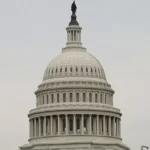In an alarming escalation of government surveillance, federal authorities in the United States have coerced Google into surrendering the personal details of thousands of YouTube viewers. These events, unfolding in the first week of January 2023, have stirred significant controversy and debate over privacy rights and the bounds of legal authority.
Unprecedented Demands on Google
Federal investigators targeted users who watched specific YouTube videos, notably tutorials on mapping via drones and augmented reality software. An undercover operation focusing on a suspect, known online as “elonmuskwhm,” accused of money laundering and unlicensed money transmission, inadvertently implicated thousands of innocent viewers. Authorities demanded Google provide names, addresses, telephone numbers, and even the user activity data of approximately 30,000 individuals as reported by Forbes.
Privacy Advocates Sound the Alarm
The sweeping nature of these subpoenas has drawn sharp criticism from privacy advocates and legal experts, questioning their constitutionality under the First and Fourth Amendments. The chilling effect on free speech and the right to privacy is palpable, with many fearing retribution or surveillance for merely accessing public content.
A Dangerous Precedent
This incident has broader implications, signifying a dangerous shift towards ‘digital dragnets' where masses of people are subject to investigation without probable cause. Critics argue this practice erodes the foundational rights and liberties that define democratic societies, turning innocent individuals into suspects based on their viewing habits.
The Role of Tech Giants
Google's compliance with these demands has been ambiguous, though it faces intense pressure to protect user privacy against overreaching government requests. The tech giant asserts its commitment to scrutinizing and challenging excessive legal demands, yet the specifics of its responses remain undisclosed.
Political Undercurrents
The Biden administration and federal entities are under scrutiny for these actions, with accusations of tyrannical overreach clouding the White House's stance on digital privacy and civil liberties. This incident adds to the growing concern over government surveillance and the need for stringent legal safeguards to protect individual freedoms in the digital age.
The federal demand for YouTube viewer identities represents a concerning intersection of privacy infringement and governmental overreach. As society grapples with these issues, the need for clear legal standards and robust privacy protections has never been more urgent, highlighting a pivotal moment in the ongoing debate over digital rights and government surveillance.
A Call for Accountability and Reform
The outcry over this case emphasizes the urgent need for legislative reform and greater accountability in government surveillance practices. As digital platforms become central to our daily lives, the balance between national security and personal privacy becomes increasingly precarious. The EU's digital privacy concerns further highlight the global debate over how to effectively regulate surveillance while safeguarding individual rights. Striking this balance requires not only stricter oversight but also transparent communication between governments, tech companies, and the public. Without meaningful action, trust in both institutions and digital platforms risks eroding further.
Advocates for digital rights and civil liberties are calling for transparent policies, judicial oversight, and stringent regulations to prevent unwarranted intrusion into individuals' private lives.
This incident not only challenges the ethics of surveillance but also serves as a wake-up call for citizens and lawmakers alike to reconsider and redefine the boundaries of government power in the digital era.

Carl Riedel is an experienced writer and Open Source Intelligence (OSINT) specialist, known for insightful articles that illuminate underreported issues. Passionate about free speech, he expertly transforms public data into compelling narratives, influencing public discourse.













